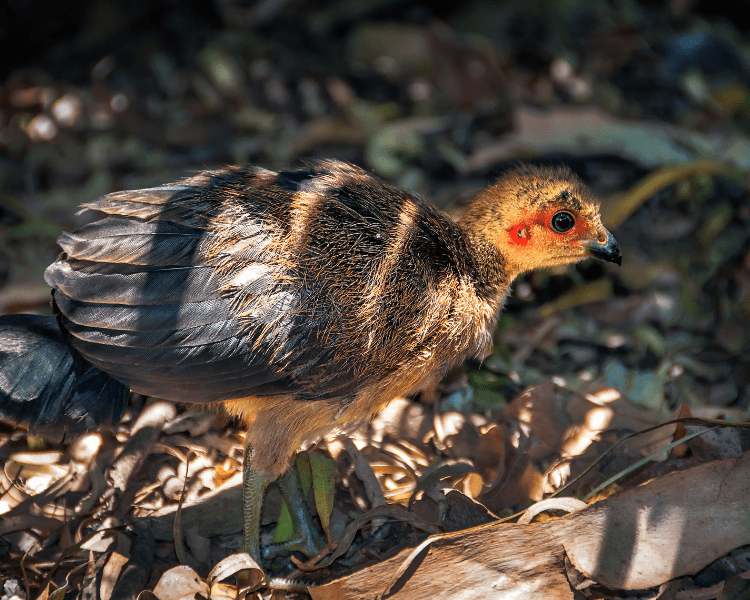words by Tigerlily Boyce
Wildlife that have learned to thrive in our urban environments can often be seen as welcome residents or be a point of conflict with humans for a variety of reasons. Bush, brush or scrub turkeys, Alectura lathami are unfortunately seen as trouble due to their mischievous behaviour around gardens when they rip out plants and dig up freshly laid mulch. This causes many people to target, chase, and even illegally kill them despite the fact they are a protected species. Trying to disturb or destroy a turkey mound can be ineffective, as they will always rebuild. Relocating them is often difficult and expensive, and just leaves room for another turkey to move in – bush turkey real estate is very competitive! Not only is it essential to learn to coexist with turkeys, it can have some awesome advantages.
In fact, bush turkeys are very beneficial to the environment; they assist with pest management of grubs and insects that pose a threat to your veggie patch, and they turn over and cultivate soil (bioturbation) assisting the spread of fungi. This in turn improves the quality of the soil and boosts soil microbial activity for your garden and the greater bush. That’s a lot!

There are a few things we can do to make it easier to garden alongside bush turkeys:
- Cover compost heaps, or keep them away from the house and garden which can also serve as a more suitable place for mound building – in a shady area away from the house and garden where you can use the area to dump compost and/or garden waste
- Protect your garden beds or newly planted seedlings with barriers such as tree guards, chicken wire, fencing, heavy coverings around the base to prevent raking (such as rocks, coarse gravel, logs or chicken wire laid on the ground)
- Plant, mulch and develop your garden in autumn and winter (outside breeding season which is August to January) when they are least active, giving plants time to establish
- If they build a mound in an unfavourable place, prune vegetation around it to increase sunlight which may help encourage them to move elsewhere
- Placing a mirror in the garden may make them think there’s another turkey already living there, this can also make an interesting garden feature
- Leaving food out for other wildlife can also encourage them – provide habitat and food sources in the way of native plants instead
- Rather than see them as a pest, see them as an asset, they are part of Australia’s unique fauna and flora
- And just after breeding season, take the time to watch for baby bush turkeys, they really are the cutest things to observe and enjoy

References

